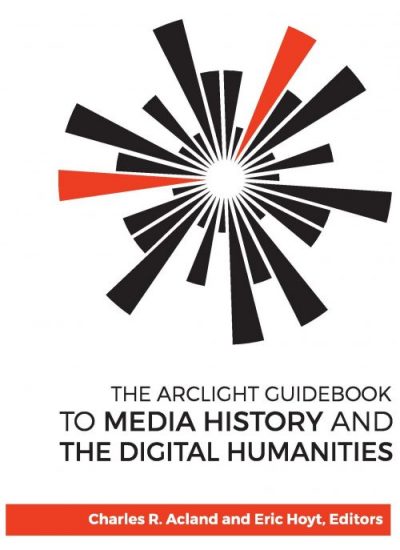Curator's Note
Promoting your book should not require an apology.
However, in conference center hallways and social media forums, I have been hearing too many film and media scholars doing just that: following up an enthusiastic announcement about the availability of a new book with an apology for the book’s exorbitant price of $100 or $150. As a solution to getting our hands on the book, we are often encouraged to lobby our university libraries to buy the book. But this assumes that libraries have endlessly deep acquisitions budgets (they don’t), and it leaves out independent scholars, underemployed PhDs, and general readers who don’t have such a library at their fingertips.
The discussions in In Focus and In Media Res largely concentrate on promoting scholarly books and translating our work to new audiences. But we need to address something more fundamental. We need to take responsibility for the accessibility of our work. One of the best ways of achieving the goal of broad accessibility is to publish books open access and make them freely downloadable online.
This was the model that Charles Acland and I used in our edited anthology, The Arclight Guidebook to Media History and the Digital Humanities, which was published in June by REFRAME Books with Project Arclight. In practice, this arrangement meant that REFRAME, edited by Catherine Grant, coordinated the peer review and insured the integrity of the publication process. Meanwhile, Charles and I applied some of the money from Project Arclight’s Digging into Data grant to fund the book’s outstanding copyediting and layout teams. None of this would have been possible without the support of our contributing authors, who were unanimously supportive of going the open access route.
I recognize that open access is not an appropriate or financially viable model for every project. Also, many university presses in our field are publishing great books that cost a small fraction of the $150 example offered above. I am organizing a workshop for next year’s SCMS Conference that will address the challenges and opportunities of open access book publishing.
My advice to fellow authors: open access may or may not be the right model for your next book. But, at the very least, think carefully about accessibility and affordability before you sign a publishing contract. Your new book is something that should be widely shared and discus. Don’t set yourself up to have to apologize.

Comments
Open Access and Academic Labor
Eric, I'm so glad you've highlighted the soaring cost of text books, which coupled together with the sky-rocketing cost of higher education and increasing need for students to take out student loans, is a vital issue for we as scholars-authors to address. What I find striking is the disparity between the high cost of text books and often the lack of compensation that we as academic authors receive for our writing labor. Perhaps we become so accustomed to not receiving financial compensation for our writing in lieu of being respected or engaging in the discourse within the field that compensation seems an after thought. But it seems to me a paradox that if we authors are not receiving substantial royalties from expensive textbooks, then why charge our students and colleagues a high price to read our work? Your Archlight Guidebook seems a fitting nascent model for an open-access publishing approach that shares the exchange of ideas. At the same time, I'm thinking back to the conversation Ross and I initiated earlier this week on In Media Res -- that of crossover books. These books are usually much more modestly priced -- for example, my book is priced at $24.95 ( in fact my press jointly published the hardcover and the paperback) -- and this seems a fair compensation for what is usually years of work in the humanities (where research grants or lengthy sabbaticals are difficult to attain). Perhaps open access is a good model for our books used in the classroom and for our students, but for the general public? I'm not yet convinced books should be free for everyone.
Add new comment